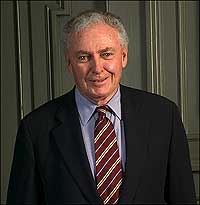Page content
The Revolution Returns
Williamsburg, capital of Great Britain's largest and wealthiest colony, had by 1774 become a city whose residents, with their dramatically varying attitudes about critical public issues and their sharply divergent statuses in life, were part of an extraordinarily dynamic community. It was a community of patriots and Tories, of slaveholders and slaves, of dreamers and skeptics. They struggled to resolve the contradictions between their loyalties to the mother country and their families, and their aspirations for freedom and independence. Some of them were bold enough to lead a revolution—political, economic, and social. Others were confused by it. Still others, angered and alienated. The times were tumultuous, marked by triumph and failure, promise and misgiving, excitement and sacrifice. Our new Revolutionary City program tells the stories of this community in engaging and historically accurate ways.
Inspired by the comments of our guests and friends, Colonial Williamsburg has inaugurated a more interactive, more family-friendly program. The Revolutionary City is a portrayal of what it was like when subjects of the monarchy had the courage to turn themselves into citizens, and then fought and endured a long and debilitating war to achieve the freedom they craved. The time spanned the years from 1774 to 1781. For two hours each afternoon, in the Historic Area neighborhood including the Capitol and the Raleigh Tavern, the Duke of Gloucester Street is the site of scripted dramatizations of stories about the revolt in Virginia. Authentically costumed actors interpreting Williamsburg's eighteenth-century inhabitants are the focal points.
The themes—one day the collapse of royal government, the next the realities of the war—echo beyond the Revolutionary City, across the Historic Area. At the Governor's Palace, the embattled Lord Dunmore maligns such "outlaws" as Patrick Henry. Down the street at the Wythe House, General Washington maps the siege of Yorktown. Peyton Randolph readies to leave his home for Philadelphia and the presidency of the Continental Congress. The shoemakers fill a quartermaster's contract for the Virginia Line.
As we launch the Revolutionary City, the pace of planning for America's 400th Anniversary accelerates. The Godspeed, a new replica from the three-ship fleet that ferried England's first permanent New World settlers in 1607, is preparing for a historic sail up the East Coast. Its "landing party" will tell of the events and activities in store for travelers to Virginia's Historic Triangle—Jamestown, Williamsburg, and Yorktown—in the eighteen months ahead. From late May through July, the vessel docks in Alexandria, Baltimore, Philadelphia, New York, Boston, and Newport, ready for inspection above decks and below, and putting ashore exhibits about what there will be to see and to do at the sites where the thirteen colonies started, where the first of them declared independence, and where all of them won our freedom.
October brings the four-day, 225th celebration of the Continentals' victory at Yorktown; December, an anniversary observance of the departure of Jamestown colonists from England in 1606; January, a televised and Webcast Jamestown teach-in for schools across America; May, the three-day America's Anniversary weekend; and September, the culminating event, a World Forum on the future of democracy. There is more—conferences, ceremonies, festivals, galas, entertainments, pageants, symposia, and exhibits—opportunities to examine the contributions to the idea of America from Native Americans and African Americans, as well the colonists, and to explore key components that have their roots in the Historic Triangle: the rule of law, representative government, free enterprise, and cultural diversity.
Leading the discussion and participating in many of the events will be retired Supreme Court justice and Colonial Williamsburg senior trustee Sandra Day O'Connor, who recently accepted appointment as honorary chair of America's 400th Anniversary, Jamestown 2007. As she said, "The commemoration is a rare opportunity for all Americans to better understand the foundations of our nation as we work together to shape our country's future."
The programs, presentations, and observances promise to revitalize the Historic Triangle's place in the ranks of primary travel destinations. At Jamestown, Williamsburg, and Yorktown we will reaffirm the vitality of the American experiment. It is not too soon to plan your participation.
Colin G. Campbell

